Three-month-old Msituni can now stand and walk properly.
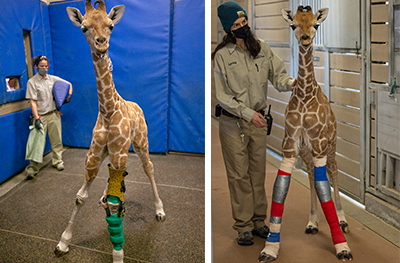
Msituni, born at San Diego Zoo Safari Park, was discovered to have a hyperextension of the carpi which meant that her front legs could not bend properly.
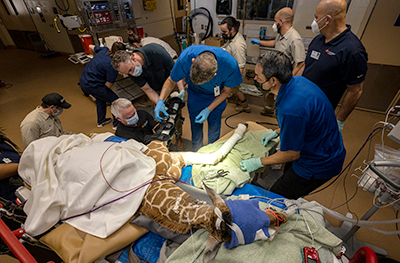
Despite never having worked with wildlife before, the San Diego Hanger Clinic team, who provide orthotic and prosthetic care for people, created a custom care plan for Msituni.
Ara Mirzaian from Hangar Clinic commented on the experience: “I feel a tremendous sense of accomplishment.
“I’ve never worked with wildlife before—it’s one of those things that is a once-in-a-lifetime opportunity.”
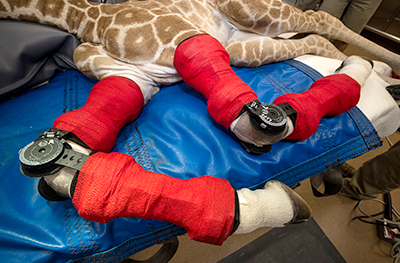
Using custom-moulded carbon graphite, the team made orthotic braces for Msituni using cast mouldings of her legs. Soon, the calf was fitted with her leg braces which also featured a giraffe pattern.
Matt Kinney DVM, senior veterinary surgeon at the San Diego Zoo Safari Park, said: “We are so glad to have the resources and expertise to step in and provide this young calf the opportunity for a full life.
“Without these lifesaving braces to provide support, the position of her legs would have become increasingly more painful and progressed to a point she would not have been able to overcome.”
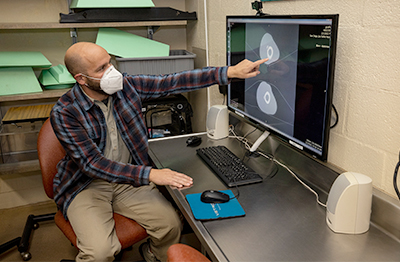
Msituni not only had hyperextension of the carpi, she also had abnormalities in her blood and her back legs had irregular positioning. The wildlife team treated her with intravenous antibiotics and specialised hoof extenders.
Msituni's treatment was a success, she no longer needs leg braces, has stopped receiving antibiotics and her back legs are now positioned correctly. The youngster has now been reintroduced to the rest of the herd to bond with them.
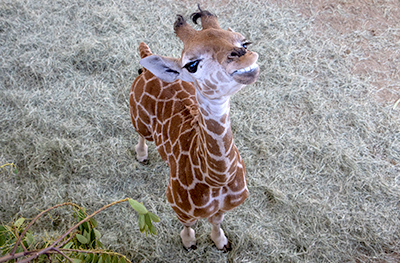
All images (C) San Diego Zoo Safari Park



 Zoetis has launched a new survey to identify management techniques for Equine Herpes Virus (EHV).
Zoetis has launched a new survey to identify management techniques for Equine Herpes Virus (EHV).